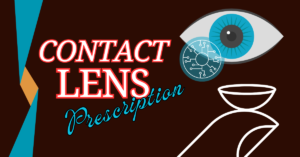Addison’s disease is a rare but serious condition that occurs when the adrenal glands fail to produce enough essential hormones, primarily cortisol and aldosterone. It affects both humans and animals, leading to significant disruptions in the body’s ability to regulate key functions such as blood pressure, metabolism, and stress responses. While it is relatively uncommon, understanding the symptoms, causes, and treatments of Addison’s disease is crucial for early diagnosis and proper management.
What Is Addison’s Disease? Overview of Adrenal Insufficiency
Addison’s disease, also known as primary adrenal insufficiency, occurs when the adrenal glands—located above the kidneys—do not produce sufficient amounts of cortisol and aldosterone. Cortisol is a vital hormone that helps the body respond to stress, maintain blood sugar levels, and regulate the immune system. Aldosterone plays a key role in balancing sodium and potassium levels in the blood, which directly affects blood pressure.
Without proper treatment, Addison’s disease can result in an Addisonian crisis, a life-threatening condition that requires immediate medical attention.
Causes of Addison’s Disease: What Triggers This Disorder?
Several factors can cause Addison’s disease, though the most common trigger is autoimmune disease, where the body’s immune system mistakenly attacks the adrenal glands. Other causes include:
- Infections: Tuberculosis (TB) and fungal infections can damage the adrenal glands.
- Genetic Conditions: Some people inherit conditions that impair adrenal function.
- Cancer or Tumors: Adrenal tumors or cancer can disrupt hormone production.
- Medications: Long-term use of steroids can suppress adrenal gland function, leading to adrenal insufficiency.
Identifying the cause is essential to determining the best treatment strategy for each patient.
Symptoms of Addison’s Disease: Early Signs You Shouldn’t Ignore
The symptoms of Addison’s disease develop gradually, making early diagnosis challenging. However, recognizing the signs is crucial to preventing serious complications. Here are some of the most common symptoms:
- Fatigue and Weakness: Persistent exhaustion that doesn’t improve with rest.
- Weight Loss and Decreased Appetite: Unexplained weight loss despite normal eating habits.
- Low Blood Pressure: Frequent episodes of dizziness or lightheadedness.
- Hyperpigmentation: Darkening of the skin, especially on scars and joints.
- Cravings for Salt: An unusual desire for salty foods.
- Nausea, Vomiting, and Diarrhea: Digestive issues are common in Addison’s patients.
If left untreated, Addison’s disease can lead to life-threatening adrenal crises characterized by severe dehydration, low blood pressure, and shock.
How Is Addison’s Disease Diagnosed? Tests and Procedures
Diagnosing Addison’s disease requires a combination of blood tests and hormonal assessments. Common diagnostic procedures include:
- ACTH Stimulation Test: This test measures how well your adrenal glands respond to adrenocorticotropic hormone (ACTH), which stimulates cortisol production.
- Blood Tests: Doctors check for low sodium, high potassium, and cortisol levels.
- Imaging Tests: An MRI or CT scan may be used to look for abnormalities in the adrenal glands.
- Autoantibody Test: This test identifies autoimmune conditions that might be causing adrenal insufficiency.
Accurate and early diagnosis is essential to prevent severe complications such as Addisonian crises.
Treating Addison’s Disease: Medications and Lifestyle Changes
The primary treatment for Addison’s disease is hormone replacement therapy to restore the levels of cortisol and aldosterone. Common treatments include:
- Hydrocortisone or Prednisone: These medications replace cortisol.
- Fludrocortisone: This drug helps maintain proper sodium and potassium levels by replacing aldosterone.
- Salt Supplements: Patients may need extra salt, especially during hot weather or intense physical activity.
In addition to medication, lifestyle changes play an important role. Patients should learn to manage stress, stay hydrated, and avoid extreme physical exertion to prevent adrenal crises.
Addison’s Disease in Dogs: Symptoms, Diagnosis, and Care Tips
Addison’s disease doesn’t just affect humans—it also occurs in dogs, especially certain breeds like Poodles and Portuguese Water Dogs. In dogs, the condition is sometimes called canine hypoadrenocorticism. Here are some signs to watch for:
- Lethargy and Weakness
- Vomiting and Diarrhea
- Low Heart Rate
- Shaking and Trembling
The diagnosis process for dogs involves blood tests and an ACTH stimulation test. Treatment usually involves lifelong medication to manage hormone levels, similar to treatment in humans.
Living with Addison’s Disease: Tips to Manage the Condition
Managing Addison’s disease requires a proactive approach to health and wellness. Here are some essential tips for patients:
- Keep Emergency Medications Handy: Always carry a supply of emergency hydrocortisone in case of adrenal crises.
- Inform Medical Professionals: Make sure your healthcare providers know you have Addison’s disease, especially during surgery or medical emergencies.
- Monitor Stress Levels: Stress can trigger symptoms, so practicing relaxation techniques like yoga or meditation can help.
- Stick to Medication Schedules: Consistent medication use is essential for maintaining hormone levels and preventing complications.
By following these guidelines, patients with Addison’s disease can lead full, healthy lives.
Complications of Addison’s Disease: What Happens If Left Untreated?
Addison’s disease can lead to severe complications if not properly managed. One of the most serious risks is an Addisonian crisis, which is a medical emergency. This occurs when cortisol levels become dangerously low, leading to life-threatening symptoms. Let’s explore the potential complications in detail.
Addisonian Crisis: A Life-Threatening Emergency
During an Addisonian crisis, the body experiences a sudden drop in cortisol and aldosterone levels. This can result in:
- Severe dehydration
- Drop in blood pressure (hypotension)
- Loss of consciousness
- Shock and organ failure
Patients in Addisonian crisis need immediate emergency treatment, typically with intravenous (IV) hydrocortisone, saline fluids, and electrolytes to restore balance.
Electrolyte Imbalance and Heart Problems
Without proper aldosterone production, patients with Addison’s disease often experience low sodium and high potassium levels. If left untreated, this imbalance can lead to:
- Heart arrhythmias (irregular heartbeat)
- Muscle weakness and spasms
- Severe fatigue
Maintaining a consistent medication schedule and monitoring electrolytes regularly are essential to avoiding these complications.
Increased Risk of Infections
Since cortisol plays a critical role in regulating the immune system, people with Addison’s disease are more susceptible to infections. Chronic adrenal insufficiency can weaken the immune response, making it harder for the body to fight off infections. Regular check-ups and prompt treatment of infections are crucial to preventing health complications.
Addison’s Disease and Mental Health: Coping with the Psychological Impact
Living with Addison’s disease can take a toll on a patient’s mental health. The condition’s physical symptoms, combined with the stress of managing a lifelong illness, often lead to anxiety, depression, and emotional fatigue. Here are some common psychological challenges and strategies to cope with them.
Common Mental Health Challenges
- Anxiety about health crises: The fear of experiencing an Addisonian crisis can cause constant anxiety.
- Depression and low motivation: Fatigue and chronic symptoms may contribute to feelings of hopelessness.
- Stress from managing medications: Patients often struggle with the stress of taking medications on time and making lifestyle adjustments.
Coping Strategies for Mental Health
- Join Support Groups: Connecting with others who have Addison’s disease can provide emotional support and practical advice.
- Counseling and Therapy: Working with a mental health professional can help patients manage anxiety and depression effectively.
- Mindfulness Practices: Techniques such as yoga, meditation, and deep breathing exercises can reduce stress and improve mental clarity.
Patients should also communicate openly with healthcare providers about their emotional well-being to receive the necessary mental health support.
Managing Addison’s Disease During Pregnancy: What You Need to Know
Pregnancy with Addison’s disease requires careful management to ensure the health of both the mother and baby. With proper medical care, women with Addison’s disease can have healthy pregnancies, but adjustments to medications and regular monitoring are essential.
Adjusting Medications During Pregnancy
Pregnant women with Addison’s disease may require higher doses of hydrocortisone to accommodate the increased physical demands on their bodies. Healthcare providers will monitor hormone levels throughout the pregnancy to adjust medications as needed.
Potential Risks During Pregnancy
- Preterm Labor: Inadequate cortisol levels can increase the risk of preterm labor.
- Low Birth Weight: Poor hormone regulation may affect fetal growth.
- Adrenal Crisis During Labor: The stress of labor can trigger an Addisonian crisis, so IV hydrocortisone may be administered during delivery to prevent complications.
With the right care plan, most women with Addison’s disease can manage their condition effectively and have successful pregnancies.
Addison’s Disease and Diet: Foods That Help Manage Symptoms
While medication is the primary treatment for Addison’s disease, certain dietary choices can support hormone balance and improve overall health. Since individuals with adrenal insufficiency are prone to electrolyte imbalances and low blood pressure, a balanced diet plays an important role in managing symptoms.
Best Foods for Addison’s Disease
- Foods Rich in Sodium: Since patients often experience sodium loss, foods like pickles, olives, broth, and salty snacks can help maintain proper sodium levels.
- Potassium-Rich Foods in Moderation: While potassium is essential for health, too much can exacerbate symptoms. Patients should consume bananas, avocados, and potatoes in moderation.
- Protein-Rich Foods: Lean proteins such as chicken, fish, eggs, and tofu provide essential amino acids and maintain muscle strength.
- Complex Carbohydrates: Foods like oats, whole grains, and vegetables help sustain energy levels throughout the day.
Foods to Avoid
- Excess Sugar: High sugar intake can worsen fatigue and blood sugar fluctuations.
- Caffeine: Excessive caffeine can contribute to anxiety and disrupt sleep patterns.
A well-balanced diet tailored to individual needs can help stabilize energy levels and improve quality of life for people with Addison’s disease.
Research and Advances in Treating Addison’s Disease
Research into Addison’s disease continues to explore new ways to improve treatment outcomes and enhance the quality of life for patients. While hormone replacement therapy remains the standard treatment, ongoing studies are investigating more efficient treatment methods and early detection tools.
Potential Advances in Treatment
- Time-Release Hydrocortisone: Researchers are developing time-release formulations of hydrocortisone that provide more stable cortisol levels throughout the day.
- Gene Therapy: Scientists are exploring the possibility of using gene therapy to correct adrenal gland dysfunction and potentially cure the disease.
- Artificial Adrenal Glands: Research is underway to create biological implants that mimic the function of adrenal glands, reducing the need for daily medication.
These advances offer hope for more effective treatments and improved management strategies for patients with Addison’s disease.
Looking for more helpful tips on health and wellness? Visit our homepage for expert advice and valuable insights!
Conclusion
Addison’s disease is a rare but serious condition that requires lifelong management. With proper treatment and lifestyle adjustments, individuals with Addison’s disease can enjoy a high quality of life. Whether it affects humans or pets, early diagnosis and treatment are crucial to preventing severe complications. Through careful monitoring, medication, and stress management, those with Addison’s disease can thrive despite the challenges it presents.
Frequently Asked Questions (FAQs)
- What causes Addison’s disease?
Autoimmune disorders, infections, and adrenal gland tumors are the most common causes. - How is Addison’s disease treated?
Treatment involves hormone replacement therapy with medications like hydrocortisone and fludrocortisone. - Can Addison’s disease affect pets?
Yes, Addison’s disease can affect dogs and requires similar treatments as in humans. - What are the symptoms of Addison’s disease?
Symptoms include fatigue, low blood pressure, nausea, and skin darkening. - Can stress trigger Addison’s disease?
While stress doesn’t directly cause Addison’s disease, it can worsen symptoms and trigger adrenal crises. - Is Addison’s disease curable?
Addison’s disease is not curable but is manageable with medication and lifestyle changes. - How common is Addison’s disease?
It is a rare condition, affecting about 1 in 100,000 people. - Can you live a normal life with Addison’s disease?
Yes, with proper treatment, individuals can lead normal, healthy lives. - How is Addison’s disease diagnosed?
It is diagnosed through ACTH stimulation tests, blood tests, and imaging. - What happens during an Addisonian crisis?
Symptoms include severe dehydration, low blood pressure, and shock, requiring immediate medical attention.
Emma Rose is a professional writer with over 3 years of experience covering a wide range of topics, including health, lifestyle, and technology. She is known for her in-depth research and commitment to providing accurate, trustworthy, and engaging content. Emma’s work focuses on delivering value to readers by simplifying complex topics and ensuring every article meets high editorial standards.




